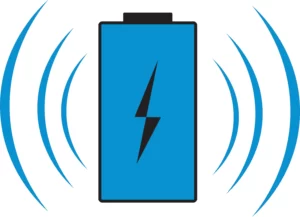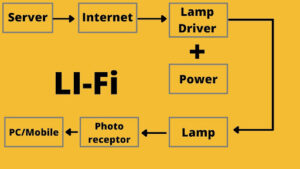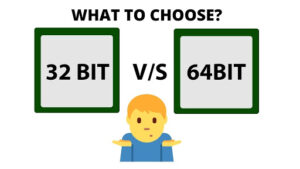TROJAN
A Trojan or Trojan horse is a type of malware that is called allowable software. Trojan can be employed by cyber thieves or hackers who try to gain access to your systems. Your computer may typically be tricked by some trick of social engineering into loading and executing Trojans on your computer or mobile. Once the code or the trojan is activated, it will create a back-door for the cyber-criminals to spy on you, they will steal your confidential data, and gain access to your computer. These
actions can include:
actions can include:
·
Deleting data
Deleting data
·
Blocking data
Blocking data
·
Modifying data
Modifying data
·
Copying data
Copying data
·
Disrupting performance of computers or networks
Disrupting performance of computers or networks
Like computer viruses and worms, Trojans are not able to replicate themselves.
How Trojans can impact you
according to the type of actions, Trojans are classified into different types.
·
Backdoor
A backdoor Trojan gives remote control over the infected computer to the attacker. the attacker forces the author to do whatever they wish on the infected computer – like sending, and receiving files or any data, launching and deleting files, rebooting the computer, or permanently block the operating system. Backdoor Trojans are often used to gather a group of martyr computers to form a botnet or zombie network that can be used for offensive activities.
Backdoor
A backdoor Trojan gives remote control over the infected computer to the attacker. the attacker forces the author to do whatever they wish on the infected computer – like sending, and receiving files or any data, launching and deleting files, rebooting the computer, or permanently block the operating system. Backdoor Trojans are often used to gather a group of martyr computers to form a botnet or zombie network that can be used for offensive activities.
·
Exploit
Exploits are also a type of program that contains data or code. It takes advantage of a vulnerability within application software running on your computer.
Exploit
Exploits are also a type of program that contains data or code. It takes advantage of a vulnerability within application software running on your computer.
·
Rootkit
The Rootkits are designed to paste certain objects or activities into your system.
Often their main intention is to prevent malicious programs from being detected. This is done to extend the run time of the malicious programs on an infected computer.
Rootkit
The Rootkits are designed to paste certain objects or activities into your system.
Often their main intention is to prevent malicious programs from being detected. This is done to extend the run time of the malicious programs on an infected computer.
·
Trojan-Banker
Trojan-Banker is one of the most ferocious malicious programs. They are designed to steal your account data for online banking or net banking systems, debit or credit card payment system systems, and credit or debit cards.
Trojan-Banker
Trojan-Banker is one of the most ferocious malicious programs. They are designed to steal your account data for online banking or net banking systems, debit or credit card payment system systems, and credit or debit cards.
·
Trojan-DDoS
These programs are called DoS (Denial of Service) attacks against targeted website addresses. By sending lots of requests – from your computer and also from several other infected computer systems – the hacker can attack the target address to make a Denial of Service. these types of attacks are mainly done on shopping websites, ticket booking websites, etc.
Trojan-DDoS
These programs are called DoS (Denial of Service) attacks against targeted website addresses. By sending lots of requests – from your computer and also from several other infected computer systems – the hacker can attack the target address to make a Denial of Service. these types of attacks are mainly done on shopping websites, ticket booking websites, etc.
·
Trojan-Downloader
Trojan-Downloaders can download and install new programs on your computer including new Trojans and adware.
Trojan-Downloader
Trojan-Downloaders can download and install new programs on your computer including new Trojans and adware.
·
Trojan-Dropper
Trojan-Dropper is used by hackers to install new Trojans and/or viruses or to prevent the detection of running malicious programs. None of the antiviruses that are available on market is capable of filtering all of the components inside this type of Trojan.
Trojan-Dropper
Trojan-Dropper is used by hackers to install new Trojans and/or viruses or to prevent the detection of running malicious programs. None of the antiviruses that are available on market is capable of filtering all of the components inside this type of Trojan.
·
Trojan-FakeAV
Trojan Fake-AV is the fake anti-virus software That is programmed to elicit money from you – in return for the detection and removal of threats even there are not a single bit of threats.
Trojan-FakeAV
Trojan Fake-AV is the fake anti-virus software That is programmed to elicit money from you – in return for the detection and removal of threats even there are not a single bit of threats.
This type of program steals user account data from online gamers.
·
Trojan-IM
Those programs, which steal the login details and passwords of our instant messaging services like AOL instant messenger, ICQ, Skype etc. are called Trojan-IM. The most popular messenger Whatsapp is not also secured from this type of Trojans.
Trojan-IM
Those programs, which steal the login details and passwords of our instant messaging services like AOL instant messenger, ICQ, Skype etc. are called Trojan-IM. The most popular messenger Whatsapp is not also secured from this type of Trojans.
·
Trojan-Ransom
This type of Trojan can modify the data on your computer – so that your computer
does not run correctly and as a result, you can no longer use specific data. The hacker will only restore your computer or unblock your data after you have paid them the money that they demand. The Force you to pay them in crypto-currency so that no transaction history can be found. But it is not sure that they must unlock your computer.
Trojan-Ransom
This type of Trojan can modify the data on your computer – so that your computer
does not run correctly and as a result, you can no longer use specific data. The hacker will only restore your computer or unblock your data after you have paid them the money that they demand. The Force you to pay them in crypto-currency so that no transaction history can be found. But it is not sure that they must unlock your computer.
·
Trojan-SMS
These programs can send you money by sending text messages from your mobile phone to premium rate phone numbers. Sometimes the hackers who belong to your network provider does it for their profit.
Trojan-SMS
These programs can send you money by sending text messages from your mobile phone to premium rate phone numbers. Sometimes the hackers who belong to your network provider does it for their profit.
·
Trojan-Spy
Trojan-Spy programs can monitor secretly, how you’re using your computer for example, by tracking the data that you enter via on keyboard, taking screenshots, or getting lists of running applications.
Trojan-Spy
Trojan-Spy programs can monitor secretly, how you’re using your computer for example, by tracking the data that you enter via on keyboard, taking screenshots, or getting lists of running applications.
·
Trojan-Mailfinder
These programs can collect email addresses that are saved on your computer.
Trojan-Mailfinder
These programs can collect email addresses that are saved on your computer.
·
Other
types of Trojans include:
Other
types of Trojans include:
o Trojan-ArcBomb
o Trojan-Clicker
o Trojan-Notifier
o Trojan-Proxy
o Trojan-PSW
How to protect yourself against Trojans
By installing effective anti-malware or anti-virus software, you can protect your devices including PC, laptop, Mac, tablet, and smartphones – against Trojans. A rigorous anti-malware solution – such as Kaspersky, Quick Heal,
Avast, McAfee, AVG, etc. will detect and prevent Trojan attacks on your PC, Windows
PCs.
Avast, McAfee, AVG, etc. will detect and prevent Trojan attacks on your PC, Windows
PCs.
·
Linux computers
Linux computers
·
Apple Macs
Apple Macs
·
Smart-phones
Smart-phones
·
Tablets
Tablets




